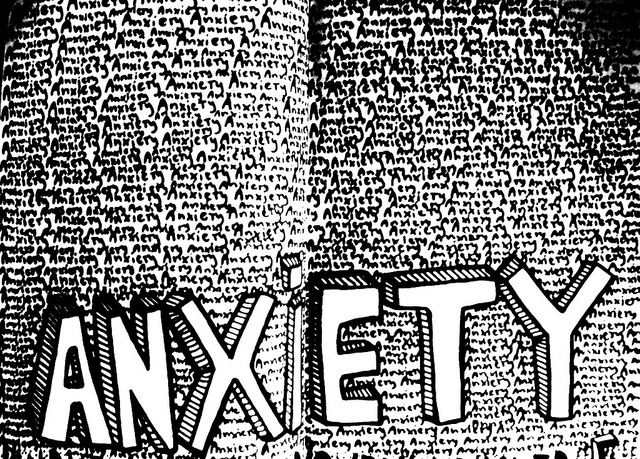When you’re feeling shy or embarrassed in a social situation or in any situation, you might find yourself blushing or sweating more than usual. In embarrassing or stressful situations, the body’s fight or flight response is activated. This releases extra adrenaline into the bloodstream causing more blood to rush to your face, neck and ears. Anxiety and nervousness can also make you sweat more on your face or under your arms. These physical displays are often more noticeable to you than to others.
You may also think that people are going to judge you or think that you are weak or dishonest by blushing or sweating, however others often just see you as being shy or nervous. Sometimes breathing can help to reduce the symptoms of blushing, see the fact sheet on Relaxation for information on breathing techniques.
What can I do if I am feeling anxious?
Changing your lifestyle. There are many things that you can do to decrease anxiety in your life. Look at the things that are causing you stress and, if possible, change your lifestyle to avoid or confront those things.
Eating and exercise. When people feel anxious, they often neglect themselves. Ensuring that you’re eating healthy foods and regular meals, as well as getting frequent exercise will improve your overall health and well-being.
Relaxation. There are many ways you can relax. Check out the Relaxation fact sheet or some of the many self-help books on the topic. Some ideas include going for a walk, taking a class like yoga or Tai Chi, learning to meditate or playing soccer with a friend.
Talking. Bottling things up is likely to keep your anxiety levels high. If possible, talk to a friend about the things that are making you feel anxious and see if they can be resolved.
Learn about what feelings do for you. Remember that anxiety and other feelings in and of themselves aren’t “good” or “bad”—they’re just a normal part of the human experience and among other things they can help us read situations.
Nonjudgmental acceptance. Know that no feeling state lasts forever (even if it feels like it will!) and it’s normal for everyone to feel anxiety at some point. But if anxiety is getting in the way for you, learning how to non-judgmentally accept the feeling can be helpful to cope.
Practice. Think about the healthy things you do to cope, and consider practicing these skills (eg, positive self-thoughts, breathing, exercise, etc.) daily—even when you are not stressed. Practice helps to remember and use effective skills when you are feeling anxious and may forget.
Remember, you are important. Consider if you may be doing things, like using alcohol or other drugs, to try to escape anxiety or other difficult feelings and experiences. Many people report that alcohol and drugs often tricked them into feeling relief, but the substance use hurt them and created many terrible problems—increased anxiety, among them. Help is out there. It’s your choice.
Acknowledgement: This fact sheet was originally developed by youth and staff at ReachOut.com, a website that helps teens get through tough times.
Special Thanks: Michelle Sobel, LCSW CADC I
Licensed Clinical Social Worker Behavioral Health Consultant Portland Area Office/IHS


